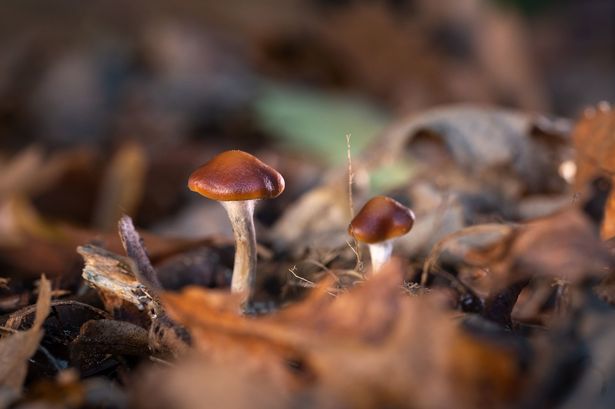Science
Patients Remain Depression-Free Five Years After Psilocybin Therapy

Research has revealed promising long-term effects for patients treated with psilocybin, the psychedelic compound found in magic mushrooms, for major depressive disorder. According to a recent study, two-thirds of participants from a clinical trial are still free of depression symptoms five years after receiving psilocybin-assisted therapy.
The study, led by Professor Alan Davis from The Ohio State University, builds upon earlier findings from a 2021 trial that demonstrated the efficacy of psilocybin combined with psychotherapy. Remarkably, 67% of participants reported being in “complete remission” at the five-year mark, a significant increase from 58% after one year.
Long-Term Remission and Well-Being
Participants in the original trial received two doses of psilocybin along with approximately 13 hours of psychotherapy. Following the treatment, participants noted a substantial reduction in depression symptoms. Of the 24 individuals involved, 18 returned for the five-year follow-up, which included online questionnaires assessing various aspects of mental health.
Professor Davis noted, “We found that across the board, anxiety, depression, global functioning, self-reported depression, all of these measures were showing the same signal of continued improvement up to five years later.” This suggests that the positive effects of the therapy extend far beyond the initial treatment period.
The follow-up study revealed that participants not only experienced lasting remission but also improved well-being across multiple measures. This includes a greater capacity for positive emotions and an enhanced outlook on life, regardless of whether their depression symptoms returned.
Insights from Follow-Up Interviews
The insights gathered during follow-up interviews provided further context on the participants’ mental health journeys. Before undergoing psilocybin-assisted therapy, many experienced debilitating depression that hindered their daily lives. After the trial, patients described their depression as “more situational and manageable.”
Interestingly, only three participants reported no additional depression-related treatment since the trial. Many had sought other therapies, including antidepressant medications and psychotherapy, indicating that the effects of the original treatment were not solely responsible for their positive outcomes.
Professor Davis emphasized the importance of the therapeutic relationship, stating, “When it comes to reducing depression with psychedelic-assisted therapy, what matters even more than the drug is a strong relationship between the therapist and study participant.” This highlights the multifaceted nature of treatment and recovery.
The findings were published in the Journal of Psychedelic Studies, revealing that while some participants faced challenges, such as emotional sensitivity and difficulty during the pre-trial period, most reported no adverse effects since the clinical trial. The durability of the therapy’s effects offers valuable insights into its long-term potential.
In conclusion, the study presents compelling evidence that psilocybin-assisted therapy could provide lasting relief for individuals suffering from major depressive disorder. As Professor Davis stated, “We believe that these data suggest that there is long-term efficacy with people who undergo these treatments.” The research indicates that even if some symptoms return, the participants did not experience the same level of impairment, suggesting a transformative impact on their lives.
-

 Entertainment2 months ago
Entertainment2 months agoIconic 90s TV Show House Hits Market for £1.1 Million
-

 Lifestyle4 months ago
Lifestyle4 months agoMilk Bank Urges Mothers to Donate for Premature Babies’ Health
-

 Sports3 months ago
Sports3 months agoAlessia Russo Signs Long-Term Deal with Arsenal Ahead of WSL Season
-

 Lifestyle4 months ago
Lifestyle4 months agoShoppers Flock to Discounted Neck Pillow on Amazon for Travel Comfort
-

 Politics4 months ago
Politics4 months agoMuseums Body Critiques EHRC Proposals on Gender Facilities
-

 Business4 months ago
Business4 months agoTrump Visits Europe: Business, Politics, or Leisure?
-

 Lifestyle4 months ago
Lifestyle4 months agoJapanese Teen Sorato Shimizu Breaks U18 100m Record in 10 Seconds
-

 Politics4 months ago
Politics4 months agoCouple Shares Inspiring Love Story Defying Height Stereotypes
-

 World4 months ago
World4 months agoAnglian Water Raises Concerns Over Proposed AI Data Centre
-

 Sports4 months ago
Sports4 months agoBournemouth Dominates Everton with 3-0 Victory in Premier League Summer Series
-

 World4 months ago
World4 months agoWreckage of Missing Russian Passenger Plane Discovered in Flames
-

 Lifestyle4 months ago
Lifestyle4 months agoShoppers Rave About Roman’s £42 Midi Dress, Calling It ‘Elegant’









